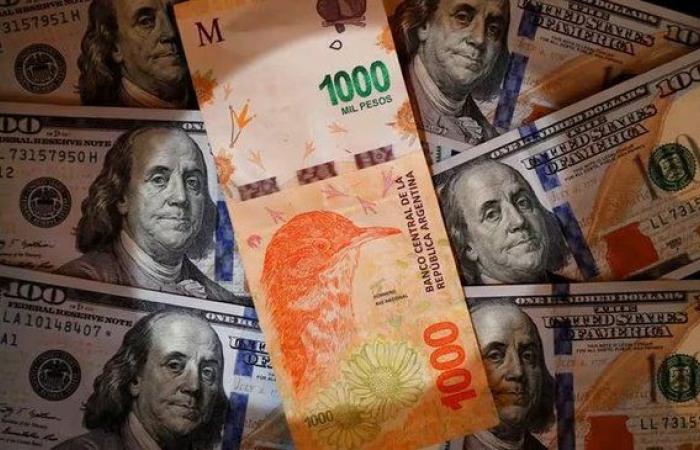The amount traded in the wholesale market improved this Thursday by an appreciable USD 163.7 million or 77.4% compared to the previous round, to reach USD 375.4 million in the cash segment. However, the Central Bank had to contribute sales of USD 85 million to supply private demand.
In this way, the balance of official intervention in the exchange market so far in June – and in the absence of a single operational wheel – went to net sales of 46 million dollars. It must be remembered that the Central Bank had had seven consecutive months with a buying balance, since November 2023. Likewise, so far this month the entity has sold foreign currency in eight sessions and ended with a buying balance in seven. In this way, June will be the first month of the BCRA with a negative balance in the Milei government.
Meanwhile, the entity’s international reserves fell by USD 137 million, to USD 29,748 million, as they also suffered the impact of the official sales carried out on Wednesday.
I received the Newsletters from La Nueva free of charge
{{msg}} {{msg}}The decrease in reserves also has an accounting basis, which is recorded at each end of the month and is compensated in the first rounds of the following month, a movement that also occurred in previous months. “There is a seasonal effect at the end of the month in financial entities that generates demand that is later reversed,” Central Bank sources specified.
The Central Bank has accumulated net purchases in the foreign exchange market for USD 17,240 million since December 11 of last year, when Javier Milei’s government took office. At the same time, the stock of international reserves improved by USD 8,539 million or 40.3%, from USD 21,209 million on December 7, 2023.
“I would release the stocks now. The conditions and requirements must be realistically faced so that Argentina has the capacity to insert itself into the world. Inevitably, this implies a current account surplus, after interest, services, of a significant magnitude, because the debt must be repaid, and the interest is very expensive, and because we have to accumulate reserves,” said economist and national deputy Ricardo López. Murphy.
“If we try to live with a current account deficit, going into debt, as we have done many times, that always ends badly. Why don’t we go the other way? For having slack. The key to Argentine development is that we grow in exports, investments, and formal private employment. What reforms are we doing? Exchange control prevents us from going there,” he argued.
It should be noted that the foreign currency debt payments that the national government and the BCRA will have to face in July amount to USD 6,504 million, according to data from the National Congress Budget Office (OPC).
Of that total, USD 645 million must be paid to the International Monetary Fund (IMF), for which part of the disbursement of USD 790 million from the approval of the eighth review will be used. In addition, other multilateral organizations must be paid USD 301 million in capital and USD 130 million in interest. The maturity is July 16, but it is estimated that it will be postponed until the end of the month as was done in previous months with capital obligations (interest cannot be extended).
Another key date is July 9, when USD 2,558 million must be paid for public securities issued with the 2020 sovereign debt restructuring.
Capital of USD 543 million in Bonares (with Argentine law: AL29, AL30, AL35, AL38 and AL41) and USD 423 million in interest on those same securities will be paid. In Globals in dollars (with foreign law: GD29, GD30, GD35, GD38, GD41 and GD46) USD 583 million in capital and USD 901 million in interest will be paid. Globals in euros (GE29, GE30, GE35, GE38, GE41 and GE46) also mature for USD 51 million in principal and the same amount of interest.
Meanwhile, on July 28, the province of Mendoza must pay USD 7 million of capital from a placement and the BCRA must give it the foreign currency. Finally, the BCRA has to face maturities of Non-Transferable Letters for USD 2,652 million (capital) and USD 217 million (interest), but in this case they can be renewed almost in their entirety.
The Ministry of Finance announced on Wednesday that with the surplus of $2.7 billion obtained from the tender of short-term bonds in pesos it will buy dollars to meet part of this payment schedule. For the second half of the year, the Government has to face obligations of USD 8,312 million, of which only USD 1,552 are from the IMF. But at the same time it would not receive new disbursements from the organization and will have to face them with its own resources. (with information from Infobae)






